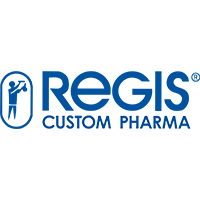
Dive Brief:
- A patient-assistance charity backed by pharmaceutical companies has filed a lawsuit against the Department of Health and Human Services, claiming recent guidance from the regulatory body violates the First Amendment.
- Patient Services Inc., a non-profit that offers financial assistance for health insurance premiums and prescription drug co-payments, filed the suit on Monday. It alleges 2017 HHS guidance restricts PSI from requesting information from physicians and potential donors about diseases, patients and pharmaceuticals that’s privy to corporate donors but not necessarily to drug charities.
- Such information, PSI continued, is imperative for developing its patient-assistance programs. The organization offers programs for a wide range of diseases, including diabetes, cancer and rare conditions.
Dive Insight:
The idea behind drug charities is in theory simple — they’re supposed to help patients afford medication. Yet to do this, most accept literally tons of money from pharmaceutical manufacturers. PSI, for example, lists pharma giant Pfizer, Alexion and many others as backers.
Throughout this process, charities are expected to remain independent, not advocating doctors to prescribe or patients to take one drug over another. Just to be sure, however, the HHS Office of the Inspector General (OIG) keeps an eye on patient-assistance charities and issues guidance to make sure they remain in toe.
Several cases demonstrate why the tight regulations are necessary.
Last month, United Therapeutics Corp. agreed to pay $210 million to resolve kickback claims. The Department of Justice alleged that the drugmaker donated to a charity foundation that, in turn, used those donations on copays for drugmakers’ pulmonary arterial hypertension products.
Aegerion Pharmaceuticals Inc. also forked over millions of dollars to the DOJ as part of a guilty plea that resolved criminal charges and civil false claims related to its drug Juxtapid (lomitapide). Also in that case, the DOJ alleged Aegerion routed money through PSI to help pay for patients’ copays — though no charges were brought against PSI.
In the current case, PSI contends it has been compliant with federal and state laws throughout its history. What’s more, it argues the latest HHS guidance prevents it from doing its job.
“Under the 2017 Modified Advisory Opinion, PSI has no practical options for setting up new disease funds or modifying existing disease funds,” PSI wrote in its complaint filed with the U.S. District Court for the Eastern District of Virginia.
“The restrictions on communications imposed by the 2017 Modified Advisory Opinion would require PSI to devote untold resources to investigate all new drug applications and to hire a staff of expensive clinical experts to recreate the information that PSI could obtain from donors, prospective donors and their affiliates if OIG did not impose this restriction on lawful, truthful and non-misleading speech,” the organization said in the complaint.
Dive Insight:
The idea behind drug charities is in theory simple — they’re supposed to help patients afford medication. Yet to do this, most accept literally tons of money from pharmaceutical manufacturers. PSI, for example, lists pharma giant Pfizer, Alexion and many others as backers.
Throughout this process, charities are expected to remain independent, not advocating doctors to prescribe or patients to take one drug over another. Just to be sure, however, the HHS Office of the Inspector General (OIG) keeps an eye on patient-assistance charities and issues guidance to make sure they remain in toe.
Several cases demonstrate why the tight regulations are necessary.
Last month, United Therapeutics Corp. agreed to pay $210 million to resolve kickback claims. The Department of Justice alleged that the drugmaker donated to a charity foundation that, in turn, used those donations on copays for drugmakers’ pulmonary arterial hypertension products.
Aegerion Pharmaceuticals Inc. also forked over millions of dollars to the DOJ as part of a guilty plea that resolved criminal charges and civil false claims related to its drug Juxtapid (lomitapide). Also in that case, the DOJ alleged Aegerion routed money through PSI to help pay for patients’ copays — though no charges were brought against PSI.
In the current case, PSI contends it has been compliant with federal and state laws throughout its history. What’s more, it argues the latest HHS guidance prevents it from doing its job.
“Under the 2017 Modified Advisory Opinion, PSI has no practical options for setting up new disease funds or modifying existing disease funds,” PSI wrote in its complaint filed with the U.S. District Court for the Eastern District of Virginia.
“The restrictions on communications imposed by the 2017 Modified Advisory Opinion would require PSI to devote untold resources to investigate all new drug applications and to hire a staff of expensive clinical experts to recreate the information that PSI could obtain from donors, prospective donors and their affiliates if OIG did not impose this restriction on lawful, truthful and non-misleading speech,” the organization said in the complaint.
source:-biopharmadive


